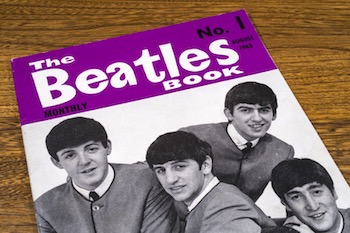 One of the more interesting copyright stories which have played out over the past few decades took an interesting turn when British singer-songwriter Paul McCartney filed a complaint for declaratory judgement of no breach of contract in the U.S. District Court for the Southern District of New York (S.D.N.Y.). The complaint, filed against New York City-based Sony/ATV Music Publishing, was filed by McCartney to ensure a smooth process of reclaiming ownership over a good portion of the music catalog created as a member of The Beatles.
One of the more interesting copyright stories which have played out over the past few decades took an interesting turn when British singer-songwriter Paul McCartney filed a complaint for declaratory judgement of no breach of contract in the U.S. District Court for the Southern District of New York (S.D.N.Y.). The complaint, filed against New York City-based Sony/ATV Music Publishing, was filed by McCartney to ensure a smooth process of reclaiming ownership over a good portion of the music catalog created as a member of The Beatles.
In the official complaint filed by McCartney, the British rock legend is seeking to reclaim ownership of the Beatles copyrights under provisions of the Copyright Act, as amended in 1976. Section 304(c) of that legislation gives authors the right to terminate transfers to reclaim copyright interests for copyrights that were assigned to transferred to third parties before January 1st, 1978. Living authors, or surviving family members of authors who have died, have a five-year period starting 56 years from the date the copyright was secured during which they can send advance notice to copyright holders notifying them of an intent to terminate the copyright transfer.
McCartney has served a series of termination notices between 2008 and 2015 to Sony/ATV to terminate their ownership of Beatles songs composed jointly with John Lennon between September 1962 and June 1971. During that time, songs co-authored by Lennon and McCartney, or written solely by McCartney, were transferred to music publishers in exchange for royalty payments. Copyright interests held by a number of companies were eventually transferred to Sony/ATV in a joint venture with American pop star Michael Jackson; Sony/ATV spent $750 million in 2016 to purchase Jackson’s share of the copyright interests. According to the complaint, McCartney has served Sony/ATV with termination notices for musical compositions including “Love Me Do,” “P.S. I Love You,” “Thank You Girl,” “Bad to Me,” “I Want to Hold Your Hand,” “All You Need Is Love,” “Across the Universe” and “Ballad of John & Yoko.”
The complaint for declaratory judgement was filed after Sony/ATV allegedly made it clear that it was waiting for the outcome of a similar case involving a British rock band. Duran Duran attempted to terminate copyright transfers made in the 1980s and Sony/ATV sued for breach of contract. In early December, a ruling from a British court agreed with Sony/ATV’s argument that Duran Duran couldn’t exercise termination rights because the original publishing agreements were subject solely to English law. The court found that the band didn’t submit admissible expert evidence on applicable U.S. law, which undermined the band’s argument that a U.S. court would not allow a claim for damages for breach of contract because the statutory termination right supersedes the contractual right. Communication from Sony/ATV to counsel representing McCartney in the days after the Duran Duran ruling indicated that Sony/ATV took a similar view of the termination notices filed by McCartney. Although Sony/ATV said that the termination notices were valid and would become effective, McCartney never received an indication whether the music publisher would bring a similar breach of contract suit. “Because the earliest of Paul McCartney’s terminations will take effect in 2018, a judicial declaration is necessary and appropriate at this time so that Paul McCartney can rely on quiet, unclouded title to his rights,” the complaint reads.

![[IPWatchdog Logo]](https://ipwatchdog.com/wp-content/themes/IPWatchdog%20-%202023/assets/images/temp/logo-small@2x.png)

![[Advertisement]](https://ipwatchdog.com/wp-content/uploads/2024/04/UnitedLex-May-2-2024-sidebar-700x500-1.jpg)
![[Advertisement]](https://ipwatchdog.com/wp-content/uploads/2024/04/Artificial-Intelligence-2024-REPLAY-sidebar-700x500-corrected.jpg)
![[Advertisement]](https://ipwatchdog.com/wp-content/uploads/2024/04/Patent-Litigation-Masters-2024-sidebar-700x500-1.jpg)

![[Advertisement]](https://ipwatchdog.com/wp-content/uploads/2021/12/WEBINAR-336-x-280-px.png)
![[Advertisement]](https://ipwatchdog.com/wp-content/uploads/2021/12/2021-Patent-Practice-on-Demand-recorded-Feb-2021-336-x-280.jpg)
![[Advertisement]](https://ipwatchdog.com/wp-content/uploads/2021/12/Ad-4-The-Invent-Patent-System™.png)






Join the Discussion
No comments yet.